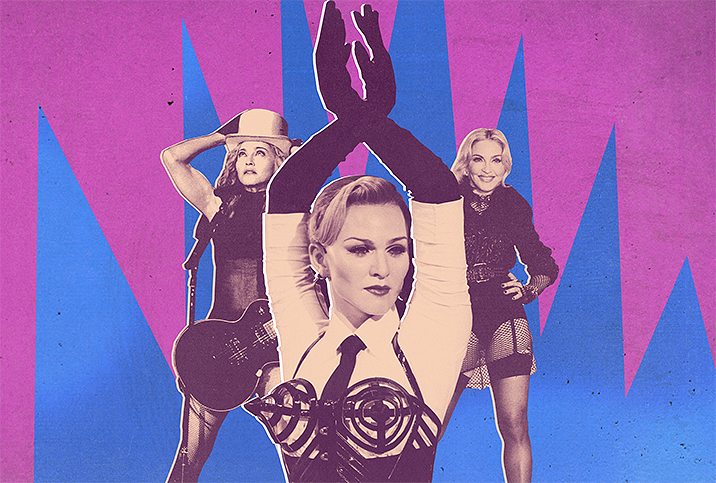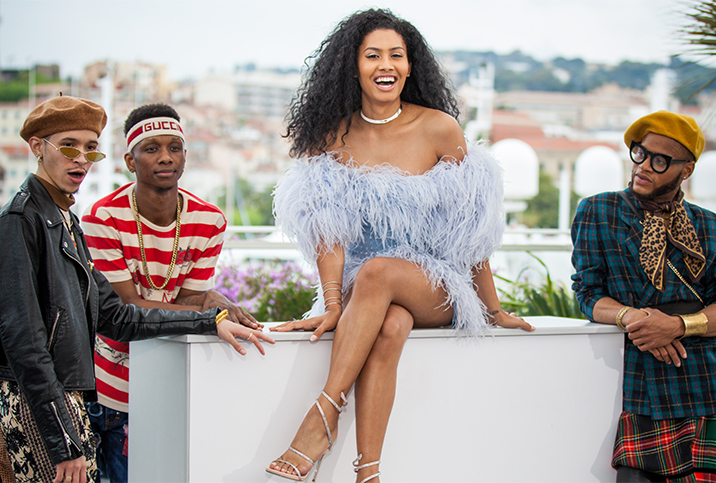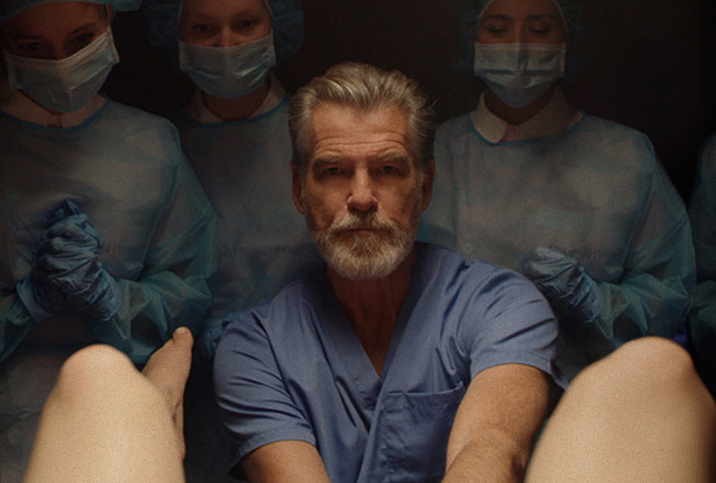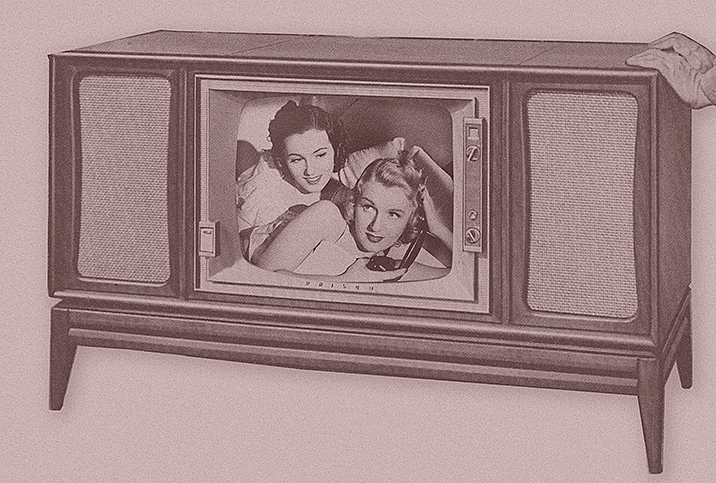Why Are Reality Shows Being Stripped of Sex?
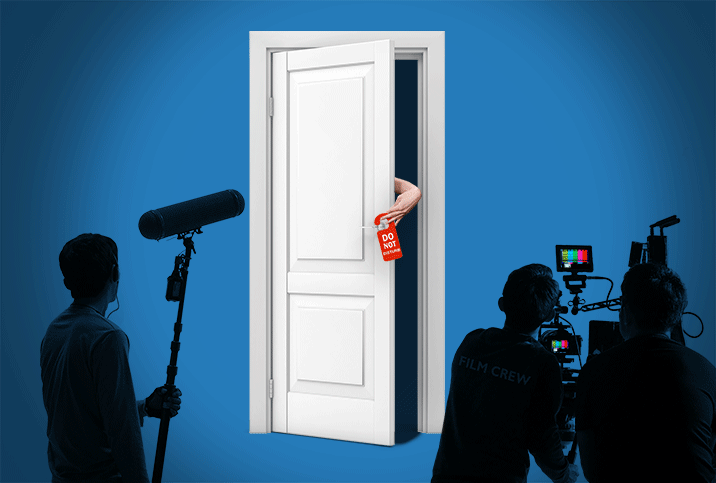
"Too Hot to Handle," a dating game show that first appeared on Netflix last year, is one of the most sexually charged reality shows ever made. Its contestants are so striking they're almost hard to look at, and they talk about sex constantly. But of course they do, because of the show's central premise: Contestants must abstain from any and all sexual contact, even with themselves, for the duration of the challenge. The show's entire draw comes from ratcheting up sexual tension to an extreme degree, and offering a few sanctioned opportunities for release.
In this way, "Too Hot to Handle" is a far cry from the unfettered hedonism that characterized reality TV in its 2000s heyday, including shows like "The Surreal Life" and "Tough Love." These hits of the aughts were nothing if not shamelessly sexual. In those dwindling days of homogenized mass media, the classic "sex sells" mantra still powered pop culture, reaching its peak with the sex tape scandals of starlets like OG influencer Paris Hilton. The contours of a new dating culture emerged via reality TV, one in which "rounding the bases" and showing skin seemed to be the way to win.
But the most recent generation of dating shows—particularly those produced by Netflix, like "Too Hot to Handle"—seem designed to discourage sex. How did we get here in such a short time?
The steamy '90s and '00s
Its rich history makes it easy to forget just how recently reality TV was born. While the earliest proto-reality shows were produced in the '70s, the genre first assumed its modern form in the '90s, as programs like MTV's "The Real World" and HBO's "Real Sex" gained mainstream recognition. Both shows were billed as "documentary series" that let viewers think of themselves as flies on the wall while the shows' subjects were, mostly, fighting and/or hooking up. Before long, the popularity of reality TV exploded.
Though neither "Real Sex" nor "The Real World" was explicitly about dating, the love and sex lives of their participants were prominently featured, as they were an endless source of salacious tape. Incidents like the alleged threesome between Mike, Melissa and a waitress in "The Real World: Miami" (1996) would have the tabloids on overdrive, creating the kind of publicity you can hardly buy. It's part of why MTV could eventually produce more than 30 seasons of "The Real World" in cities spanning the globe, along with spinoffs-in-spirit like "Jersey Shore." The latter show set network ratings records year after year just by following some Italian-adjacent club rats who couldn't keep their hands off each other and built their own lexicon for sex (I mean, smushing).
Then titles anchored by a wide range of bachelors appeared, from glam rocker Bret Michaels on "Rock of Love" to gangsta rapper Flava Flav on "Flavor of Love." Some of the women who competed for their affections ended up with their own shows, including Tiffany "New York" Pollard and bisexual MySpace model Tila Tequila.
These newer offerings were decidedly steamy, with cameras frequently spying on romps between the suitor and their bae of the day. Casting directors seemed to favor aspiring models who wore bikinis like loungewear, imbibed with reckless abandon, and performed the sort of sexual fluidity prescribed by Katy Perry's inaugural hit, "I Kissed a Girl."
For a long time, this formula practically guaranteed success. But as the locus of youth culture began to shift from cable to streaming services, the sensibilities of dating reality shows did too—especially on Netflix.
Chastity and algorithms
In 2019, Netflix debuted its first original dating reality show, "Dating Around"—and it was a far cry from its horny predecessors. It features New York singles shot cinematically as they embark on a series of first dates, none of which take place in a private space. "Dating Around" was quickly followed by "Love Is Blind," in which couples date remotely and don't meet until a marriage proposal is made. Then came the aforementioned "Too Hot to Handle," which put the "hottest, horniest, commitment-phobic swipesters" under one roof and then fined them thousands of dollars if they succumbed to temptation (a $6,000 blowjob made the stakes crystal-clear).
While each show has a different premise, they've all managed to cleave sex from the ritual of dating. But why?
As it turns out, that old adage about sex selling may no longer be true. Netflix and other streaming giants make their decisions about what to produce based on how their current offerings are performing. "Netflix is all about algorithms," said film producer Daniel Hess of To Tony Productions, based in Baltimore. "The more they can hone in on what users are watching, the more they create content for them." Now that Gen Z is the consumer demographic whose attention is at a premium, their taste is prioritized, and it can skew rather chaste.
As the locus of youth culture began to shift from cable to streaming services, the sensibilities of dating reality shows did, too.
Lately, there's been much hand-wringing over the so-called "sex recession" claiming young adults globally, and it's true that young people are having less sex than they did in generations past: A recent study published in JAMA Network Open found that from 2000 to 2018, sexual inactivity increased among young men and women. But some members of Gen Z also seem to be put off by the cultural pervasiveness of sex entirely.
"Sex positivity in general is great," said Alicia Mayo, a 20-year-old poet and college student. "However, I find that some people use it as an excuse to sexualize others in a non-consensual way." Mayo believes the pendulum of sexual permissiveness may have swung too far in the other direction, creating "an environment where sex-positive [attitudes] feel forced" onto everyone.
Though the streaming giant is notoriously tightlipped about its program ratings, it's possible Netflix has tapped into this generational shift in attitude through the use of its almighty algorithms—resulting in far less libertine reality TV shows.
But streaming services aren't just catering to demand from prudish Gen Zers—they're also inserting their own moral messages about casual sex. The creators of "Too Hot", in particular, are pretty open about the extent to which these chaste show formats are meant to be a corrective to hookup culture. Through Lana, the show's Siri-like supervisor, we learn the purpose of this experiment is to offer contestants the "tools to become authentically connected," with the implication being that having sex too soon impedes closeness. As executive producer Jonno Richards told Rolling Stone, the show's pitch was inspired by "the fact that millennials and younger generations were jumping into bed with each other too quickly."
Whether it's due to shifting sensibilities about sex, admonishment from the shows' producers, or a little bit of both, reality dating shows have undoubtedly entered a new era—one in which slow and steady is the new sexy. Hopefully, we can keep the nudity and naughty words that were always censored on cable, though. Otherwise, viewers might as well sit with chaperones.












